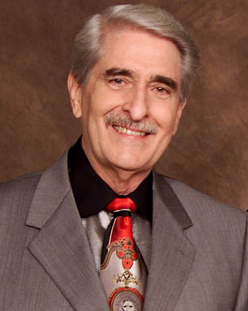A Quote by Lisa Hoffman
Can't find a reason why God gave you to me. But that's not a question to be asked. May be question is how did God knew that I needed someone like you Love is like pi - natural, irrational, and very important.
Related Quotes
I asked for strength,
and God gave me difficulties to make me strong.
I asked for wisdom,
and God gave me problems to learn to solve.
I asked for prosperity,
and God gave me a brain and brawn to work.
I asked for courage,
and God gave me dangers to overcome.
I asked for love,
and God gave me people to help.
I asked for favors,
and God gave me opportunities.
I received nothing I wanted.
I received everything I needed.
When I Asked God for Strength He Gave Me Difficult Situations to Face When I Asked God for Brain & Brawn He Gave Me Puzzles in Life to Solve When I Asked God for Happiness He Showed Me Some Unhappy People When I Asked God for Wealth He Showed Me How to Work Hard When I Asked God for Favors He Showed Me Opportunities to Work Hard When I Asked God for Peace He Showed Me How to Help Others God Gave Me Nothing I Wanted He Gave Me Everything I Needed.
Now I wonder whether I have sufficiently realized that during all this time God has been trying to find me, to know me, and to love me. The question is not 'How am I to find God?' but 'How am I to let myself be found by him?' The question is not 'How am I to love God?' but 'How am I to let myself be loved by God?'
The soul may not be destroyed. The soul goes on forever. Like the number pi, it is without cessation or conclusion. Like pi it is a constant. Pi is an irrational number, incapable of being made into a fraction, impossible to divide from itself. So, too, the soul is an irrational, indivisible equation that perfectly expresses one thing: you.
I think there is, not in the sense that I enjoy it, but that it's an important question. It's the question, "Does the presence of pain mean God doesn't care? Does God not love me anymore?" I think that's a very common connection we tend to make. I see that a lot in my own life and in the lives of others.
But why doesn't the Gospel ever say that Christ laughed?" I asked, for no good reason. "Is Jorge right?" "Legions of scholars have wondered whether Christ laughed. The question doesn't interest me much. I believe he never laughed, because, omniscient as the son of God had to be, he knew how we Christians would behave. . . .
God spoke to me clearly and said, 'Did I give my son Jesus on the cross expecting nothing in return?' God bankrupted heaven and gave the best gift he could give. He gave the best offering he could give. What did God need? He needed sons and daughters, he gave the very thing he needed. You can bring God a gift fully expecting something in return. Get to the phone!'
But in the end, science does not provide the answers most of us require. Its story of our origins and of our end is, to say the least, unsatisfactory. To the question, "How did it all begin?", science answers, "Probably by an accident." To the question, "How will it all end?", science answers, "Probably by an accident." And to many people, the accidental life is not worth living. Moreover, the science-god has no answer to the question, "Why are we here?" and, to the question, "What moral instructions do you give us?", the science-god maintains silence.
God, When I was alone, and had nothing, I asked for a friend to help me bear the pain, No one came, except God, When I needed a breath to rise, from my sleep, No one could help me.. except God, When all I saw was sadness, and I needed answers, No one heard me, except God, So when I'm asked.. who I give my unconditional love to? I look for no other name, except God
He [God] made us free, and He respects that. It is two different spheres of causality. Interdependent, though. It is not two boxes looking at one another without any kind of direct connections. There are very direct connections. That's why the question of "how are we free if God is omnipotent?" is a real, constant question. Ultimately, God is all powerful, and yet we are free.

































